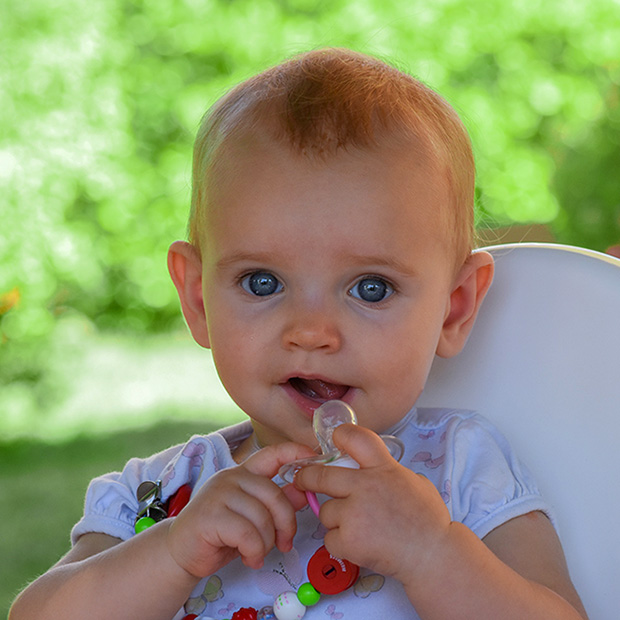Thumb-Sucking, Pacifiers, And Oral Health

The world is a big, new, confusing place for a young child, so it shouldn’t be much of a surprise that they like having something familiar to help them cope.
Sometimes this means a stuffed animal or favorite blanket they carry everywhere, but for many children, it’s a pacifier or a thumb.
As parents, it’s important to be able to strike the right balance for our children when it comes to thumb-sucking or pacifier habits. Forcing them to stop too early can bring them unnecessary stress, but allowing them to continue sucking that thumb too long can cause significant problems for their oral health.
When Thumb-Sucking And Pacifiers Are Beneficial
Sucking on things is a reflex babies develop before birth, and it can be very comforting for them. Sucking their thumb or a pacifier will help them feel safe and happy in their earliest years of life. Benefits to thumb-sucking or pacifier use at this stage include helping them sleep (which also helps you sleep), keeping them calm when separated from you, and reducing the risk of SIDS.
When Is It Time To Stop?
Many parents worry that their toddler’s thumb-sucking or pacifier use will cause their adult teeth to grow in crooked, but there’s no need to worry at this age. Most children stop sucking their thumbs on their own by age four, and when they begin school, the desire to appear as grown-up as their peers will encourage them to stop.
If they don’t stop on their own around kindergarten age, this is when it’s important to intervene. Once the permanent teeth start coming in, vigorous thumb-sucking can lead to changes in the shape of the palate and an open bite between the upper and lower teeth, which will mean expensive orthodontic treatment down the line.
Tips For Discouraging Thumb-Sucking
Bite and dental alignment problems are less common with pacifiers because parents can simply take the pacifier away if the child doesn’t stop using it on their own by age three, but if your child is getting close to age six and still sucking their thumb, here are a few safe strategies you could use:
- Praise their successes rather than scolding them for continuing to suck their thumb.
- Create a rewards chart so they can see the progress they’re making and what they’re working for.
- Keep their hands and minds occupied with activities like arts and crafts. Sometimes they thumb-suck because they’re bored!
- Cover their hands with socks at night to keep them from thumb-sucking in their sleep. (You may need to tape these in place so they can’t remove them.)
Don’t forget that these strategies are for kindergarten-age and older children, not toddlers! Toddlers are too young to understand why you want them to stop sucking their thumb, so attempts at discouragement will only upset them.
Come To Us With Your Concerns
If you’re worried about your child’s pacifier use or thumb-sucking habit, don’t hesitate to talk to us! We can answer your questions and help you develop an effective strategy to ensure your child’s healthy dental development.